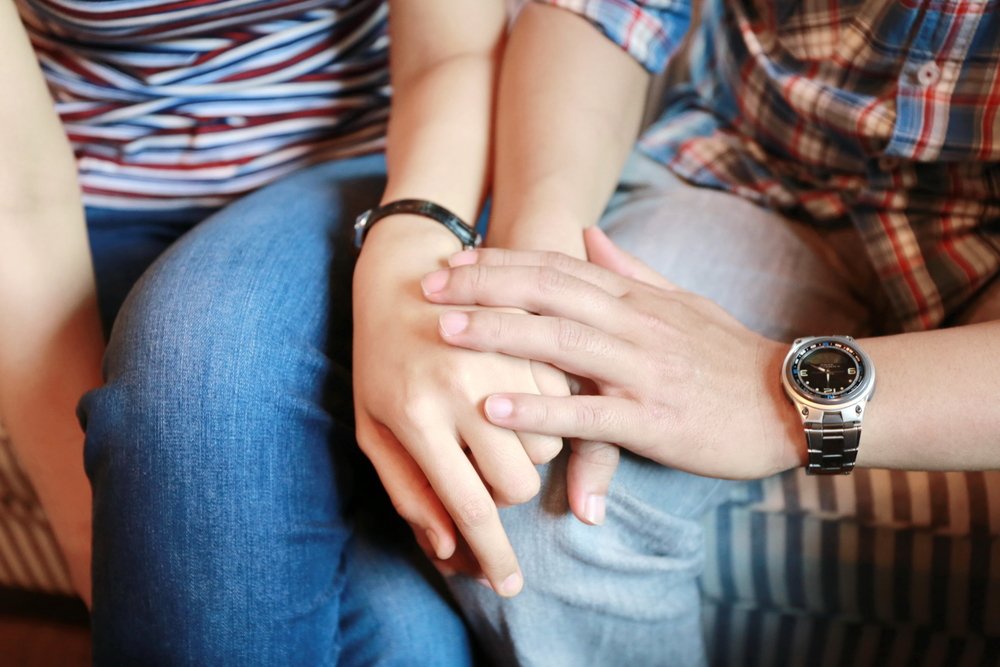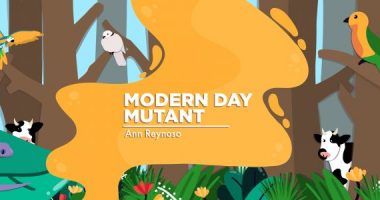How I Respond to Common Reactions About My Disease

Because I was diagnosed with a chronic illness at 28 years old, I have received many different reactions to the news. Most people are well-intentioned, some don’t know what to say, and others share common reactions that one might expect when something unfortunate happens. I experienced a lot of this when I was diagnosed with idiopathic pulmonary fibrosis (IPF) almost two years ago.
Thinking back to when I was first diagnosed, I proceeded with the news of my IPF in two opposite ways. I either chose to keep my diagnosis to myself and not share it at all, or I shared every detail, almost as if I were reciting a section of a medical journal that I had memorized. When I did the latter, it felt as though I was talking about someone else’s story, not mine.
Whether or not I chose to share news about my disease was one element of this new nightmare that I could control, so I clung to the freedom of either sharing my diagnosis in detail or not at all.
One thing I couldn’t control was how others responded, regardless of their intention. Some were emotional, others believed everything would be fine and wouldn’t accept the seriousness of my illness, and others were avoidant, ignoring my diagnosis completely.
Everyone is entitled to cope in their own way when faced with news of a difficult diagnosis, and I have realized that some people simply don’t know how to respond to a young person living with a terminal illness. It isn’t my job to manage how they cope or react to the knowledge that I have IPF, but it is my job to control how I respond to those reactions.
Following are some of the common reactions I receive from strangers, family, and friends about my illness and how I respond to those reactions:
- “I’m so sorry.” I get this a lot. It is a pretty standard response when someone is trying to empathize with you. People mean well when they say this, and usually, my response is something like, “I am sorry, too. I wish I didn’t have IPF.” I try to move the conversation forward and not sit too long in the space of being sorry and not being able to do anything about it. I usually launch into the unexpected gifts that my diagnosis has brought me. While I wish I never had IPF, in a way, I have learned a lot about life, myself, and those who love me that I would never have learned without my diagnosis. More on this in a future column.
- “This is so unfair.” The first thing I usually do in response to this is to agree. It isn’t fair that I fell ill with a lung disease so young, having never smoked a day in my life. While I agree with people when they say it isn’t fair, I try to move out of yet another conversation that isn’t going anywhere. What I usually talk about next is the classic cliché that life isn’t fair. I launch into other unfair things that happen in the world and say that I am not the only one experiencing something unfair.
- “Why you?” Usually, this comes the elaboration of, “Why not someone who deserves a terminal illness?” This implies someone has wronged a person with a disease or that the patient has done something widely harmful to society. Honestly, does anyone really deserve a terminal illness? Perhaps some might believe so, but I don’t think that I do. I am the first one to admit that I wish it wasn’t me who had this disease as well, but at the same time, why not me? No one should have to live with a disease that steals their breath away. I can’t wait for the day when research has found a cure so we live free of pulmonary fibrosis.
- “I wish it were me instead.” I try to redirect away from this reaction quickly, because I don’t think (or hope) that people really mean it, and I don’t want them to. I tell them that I am glad it’s not, and because it’s not, I advise them to try and make the best out of all their days here and really focus on living a quality life instead of focusing on quantity. After all, we never know when our stories will end.
***
Note: Pulmonary Fibrosis News is strictly a news and information website about the disease. It does not provide medical advice, diagnosis, or treatment. This content is not intended to be a substitute for professional medical advice, diagnosis, or treatment. Always seek the advice of your physician or other qualified health provider with any questions you may have regarding a medical condition. Never disregard professional medical advice or delay in seeking it because of something you have read on this website. The opinions expressed in this column are not those of Pulmonary Fibrosis News or its parent company, BioNews Services, and are intended to spark discussion about issues pertaining to pulmonary fibrosis.









Comments
Linda Sayre
I have pulmonary Fibrosis. I am always told "We are all dying. You could walk across the road and get hit by a truck. die that moment".I don't like that. There is more to it. If I instantly die getting hit by a truck. I would die not knowing what happened to me and I would have no pain. I have "I hope" many years left but, I also know some where in those years I am going to have pain and not be able to breath on my own. When they say that to me I tell I don't like that because I am going to suffer. Don't they understand that.
Charlene Marshall
Hi Linda,
Thank you so much for reading my columns and contributing your comments. The idea of losing our lives to pulmonary fibrosis is very frightening, I agree, mainly because of the way the disease will progress (for me anyways). I try not to think about it, because none of us know when our stories will end, although I know this is certainly easier said than done. Have you thought about talking to your family, or doctor about your wishes when it does come time for that (even though it could be many years away...)? It might help ease your mind a bit if they know to prioritize comfort for you, and oxygenation? Just something to think about in future, albeit a very tough topic to consider.
Best wishes to you Linda, and feel free to connect any time.
Warmly,
Charlene
Mary Echberg
Hi Charlene - I would like to thank you for all your articles, and complement you on the way you structure your own experiences and responses to others. Very understanding and empathic. I was diagnosed with combined IPF and emphysema 2 years and 5 months ago, I still find it difficult to talk about it with family and friends, I guess this is,partly due to being an ex smoker more than 18 years ago and with this comes guilt (I.e. do the crime and do the time). Because I am fiercely independent my family remain at arms length allowing me to lead the way. Exception my husband of 46 years has been my greatest supporter. Overall responses to my diagnosis is not dissimilar to yours and the serious of the illness is difficult to comprehend by others including myself at times. Reading the IPF forums has assisted me in greater acceptance of pending death and hence planning and getting my house in order. Thankyou. Mary E
Charlene Marshall
Hi Mary,
Thank you so much for your kind words, I will treasure them always. I so appreciate everyone who takes the time to read my columns. I admit that sometimes my position of positivity, understanding and empathy is not always present in this battle against IPF but I know personally, that I feel better overall when I position myself in this light. Although, I understand that for others, this is certainly easier said than done.
I am so sorry to hear of your diagnosis, and the difficulty you find in talking about it with friends and family. I can understand that, although I pray you do not hold onto the guilt of being an ex-smoker. So many of us unknowingly expose ourselves to toxins of all kinds, and even when we do know, thinking back to dwell on the "Would have, should have, could have" (as I call it) isn't always helpful in moving forward. I am so grateful to read that you have your husband as a support and that your family allows you to identify what you need. I too am fiercely independent ... I love how you phrased that! :)
I'm so glad the PF columns have been helpful for you, and please feel free to connect with us at any time. We are all in this together!
Warmly,
Charlene
Mark Crossley
I was diagnosed with pulmonary fibrosis going on for years now. My pulmonary fibrosis is a result of rheumatoid arthritis on top of welding in the steel mill for 20 years breathing all those bad things into my lungs. the biggest thing I have going for me. I get the same reaction everybody else has been getting I'm sorry I wished it was me everybody's dying and I'm like you all when it comes down to it I'm going to let it get me down. People don't understand just how bad this is in the later stages and I hope most of them never have to find out. I had a good friend pass from this disease several years ago, before I was diagnosed so I know what what's coming for me. The man upstairs walk hand-in-hand with me. like I said I'm almost 4 years into this disease and I'm still real healthy I live on my own I'm on oxygen 24/7 but I'm still doing great so don't ever give up because it can be beat don't ever lose faith.
Charlene Marshall
Hi Mark,
Thank you so much for reading my column and contributing your comments. I always appreciate hearing from readers!
Isn't it interesting what the common reactions/responses are from people when we disclose our disease? I think your stance about not letting it get you down is important, and something that is helpful for me to remember also is that people are usually well-intended when they make comments, sometimes they just don't know how to respond to us. I also hope others don't have to understand what this disease is like in the later stages; in fact, I can't wait for the day that we are a world living without pulmonary fibrosis. I will keep your message of never giving up or losing faith close with me, thank you for sharing a bit of your story. Best wishes to you!
Warmly,
Charlene
Sandra Kiskunas
I to have IPF along with rheumatoid Arthritis and reynard’s disease and autoimmune diseases. Also I am an ex smoker for 30 plus years.Just about everyone I know friends and family know what Is going on with my body, but sometimes I think to myself do they really understand what I am going through! My husband tried to help the best he can, plus work a full time Job. I don’t work ever since I got very sick with pneumonia and just couldn’t get well. Went from Dr to Dr to find out why. So finally after many tests I found out what all was wrong. Which was mentioned. Sometimes I feel afraid even to drive just to go shopping so someone brings me, I get strange looks when we park in an handicapped spot, like why are they parking in this spot . Then they see me with my oxygen machine, and have an oh my that’s why, or people have asked me are you this way because you smoked! I say no its not but it didn’t help me. I would like to say to all the comment from everyone and to Charlene thank you for sharing! It has helped me come out of my shell ! I hope I didn’t talk to much, thank for listening. Sincerely Sandra K.
Charlene Marshall
Hi Sandra,
Thank you for taking the time to read my columns and contribute your comments. I am so sorry to hear of your diagnosis' though; managing those in addition to IPF must be very difficult. My thoughts are with you!
It sure is hard for us to intrinsically understand what it feels like to not be able to breathe, and not have any one else understand, isn't it? Even though people try to understand and their intentions for wanting to support you are good, there is a level of understanding that others just cannot get. I think that is why I find so much comfort from those reading my columns, and participating in the forums, because we as patients truly understand.
Feel free to comment any time, there are a lot of great people in our "PF online community" and everyone is so willing to help. Hang in there, and I am so glad to hear our comments have helped you come out of your shell a bit. Best wishes to you Sandra!
Warmly,
Charlene
Rhonda
I have IPF but try and remain as active as possible. I am also a three time cancer survivor, Non-Hodgkin’s lymphoma, melanoma, and breast cancer. By far IPF is the most difficult, unfortunately people just can’t wrap themselves around how difficult it is to breathe because it’s so natural. I also get strange looks getting out of my car in a handicapped spot because I look healthy but in seconds I can be immobilized with no breath and violent cough. But when someone inquires what is wrong with me I let them know unfortunately I have an uncurable lung disease, but continued to say I’m still out here enjoying a round of golf and try to make the best of my life and enjoy myself. I find this sometimes beneficial because somewhere they may meet a friend or a family member and this will give them an understanding, That yes it’s difficult but you still can enjoy yourself, and try to be as positive as you can that someday they’ll have a cure.
Charlene Marshall
Hi Rhonda,
Wow, thank you so much for taking the time to read my columns and share a bit of your story. It is very inspiring!
I completely agree with you that IPF is such a difficult disease for others to comprehend. Especially since it is usually an invisible illness (unless you're using supplemental oxygen of course) so people wonder why we are so short of breath, or can't walk up stairs and instead use an elevator. I always say to my friends and family that I appreciate their efforts to try and understand what it is like not to be able to breathe, they just cannot understanding despite my talking about it until I am blue in the face (pun intended). They mean well, but others just don't understand it unfortunately which makes it very difficult for us.
I really like your approach when people ask / inquire as to why we have the symptoms we do. It is an opportunity to educate others so that they might be more understanding in future. Kudos to you!
Thanks again for writing!
Warm regards,
Charlene.